Mar 2022 1st edition
Mar 2022 1st edition Joy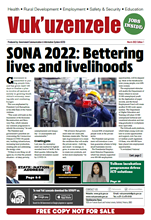
English PDF version
Translations
Afrikaans
isiNdebele
isiXhosa
isiZulu
Sepedi
Sesotho
Setswana
Siswati
Tshivenda
Xitsonga
Become an organ donor and save lives
Become an organ donor and save lives SiboneloParussia Muhigirwa (13) is alive and thriving today thanks to someone for selflessly registering to become an organ donor.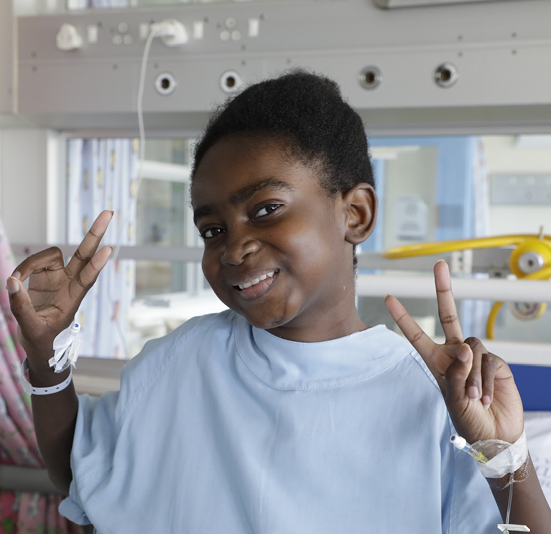
Muhigirwa is enjoying life to the fullest a year after her successful heart transplant at the Red Cross War Memorial Children’s Hospital (RCWMCH) in the Western Cape last February.
The successful transplant, a collaborative effort by the RCWMCH and Groote Schuur Hospital team, was the first to be conducted at the hospital in 13 years.
Muhigirwa was diagnosed with dilated cardiomyopathy, a condition in which the heart muscle becomes weak, floppy, enlarged and dilated. She was in heart failure before her transplant, and would have died if she didn’t receive an organ donor’s heart.
Now, she is full of smiles and grateful that she has more energy and can actually climb stairs. “I also don’t have to spend so much time in hospital, which is great, and I can go to school and see my friends,” she says.
Before the transplant, Muhigirwa had to have medication to weaken her immune system. This made her nervous because South Africa was in its second Coronavirus Disease wave at the time.
Muhigirwa felt better after speaking to her doctors about the risks of the transplant and the possibility of contracting the virus. “That’s why I chose to get my vaccine… My mother got hers to ensure I am safe and we don’t need to worry,” she adds.
Professor Mignon McCulloch, who heads up the paediatric transplantation service at RCWMCH, says the team is delighted with how well Muhigirwa is doing after her transplant. “Her health and vitality is a credit to the fact that transplantation gives a second chance at life. We are really grateful to her donor and the family.”
Become a donor
Samantha Nicholls, the Executive Director of the Organ Donor Foundation (ODF), says anyone in good health and clear of defined chronic diseases can register to become an organ and tissue donor.
“The organs (heart, liver, pancreas, kidneys and lungs) can save seven lives. The tissues (corneas, bone, tendons, heart valves and skin) can help up to 50 people,” she explains.
The ODF says it’s very important to discuss your decision with your family. Let them know that you want to donate your organs and tissue after death, and ask them to honour your wish when you die.
Registering to become a donor is free and easy. Simply register online at www.odf.org.za or call 0800 22 66 11 toll-free.
End of State of Disaster in sight for SA
End of State of Disaster in sight for SA JoyPresident Cyril Ramaphosa recently announced in his 2022 State of the Nation Address (SONA) that government plans to scrap the National State of Disaster as the country enters a new phase in the management of the Coronavirus disease (COVID-19) pandemic.
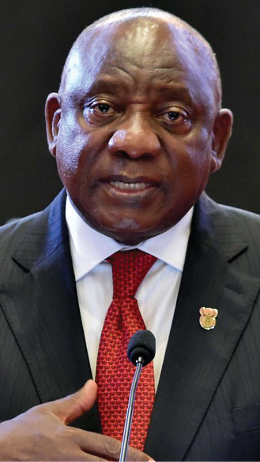 “It is our intention to end the National State of Disaster as soon as we have finalised other measures under the National Health Act and other legislation to contain the pandemic,” said the President.
“It is our intention to end the National State of Disaster as soon as we have finalised other measures under the National Health Act and other legislation to contain the pandemic,” said the President.
On 15 March 2020, President Ramaphosa declared the National State of Disaster in terms of the Disaster Management Act and announced a range of measures to contain the COVID-19 outbreak.
President Ramaphosa said nearly all restrictions on economic and social activity have already been lifted, which is largely thanks to the vaccination rollout programme.
He reminded citizens that vaccines are the best defence against illness, death and COVID-19, which has claimed close to 100 000 lives locally.
“I've always said from a personal point of view, had I have not been vaccinated, in December when I contracted COVID-19, I probably will not be standing here,” he reflected.
The President took the time to urge South Africans to take the life-saving jab and continue to observe basic health measures and remain vigilant.
“We will be able to get on with our lives, even with the virus in our midst,” he said, adding that the pandemic has exacerbated the divide between those who are employed and those who are jobless.
Solidarity Fund
President Ramaphosa announced that the Solidarity Fund has raised R3.4 billion from more than 300 000 South Africans and companies, while more than 400 individuals and 100 companies volunteered their time and services.
“The fund has played a pivotal role in supporting the national health response and alleviating the humanitarian crisis that confronted our country and our people.”
He thanked everyone who contributed to the fund, including some Members of Parliament, and other initiatives to support those affected by the pandemic.
The President also paid tribute to the many healthcare and frontline workers who play a key role in the fight against COVID-19.
“The nation owes a great debt of gratitude to the dedicated health workers and to other frontline staff who put their own health and lives at risk to care for the ill and the vulnerable during this period,” he said. SAnews.gov.za
Fight for your consumer rights
Fight for your consumer rights tsoanaDon’t let a supplier get away with supplying a product that doesn’t work or a service that is not what you agreed to.
“Consumer protection starts with consumers, and it’s up to you to know and protect your rights as enshrined in the Consumer Protection Act of 2008,” says National Consumer Commission (NCC) Acting Commissioner, Thezi Mabuza.
“As a consumer, it starts with you taking the right action when you feel that you have been treated unfairly. You have the right to be heard and to get redress. Consumer protection bodies are there to protect you,” she adds.
Protecting consumers
Mabuza says that it is important that when you enter into a fixed-term contract you understand its terms and conditions.
She also says consumers need to understand the duration of the contract and the terms of terminating the contract.
Consumers should also not take delivery of defective goods, even when a promise is made that the defect will be fixed at a later stage.
“Inspect the goods you are accepting delivery of. Remember that you have a right to safe, good quality goods."
Mabuza added that the goods must be usable and durable for a reasonable period of time (at least six months).
"If the goods fail to meet this, you are advised to take them back to the supplier for a full refund, repair or replacement,” Mabuza explains.
When transacting online, make sure you are dealing with a legitimate business. “Visiting review sites to see what other consumers say about the supplier may be beneficial,” says Mabuza.
Where to get help?
If you feel you have been exploited, you must first complain to the supplier to try and resolve the matter.
“If this fails, you can escalate your complaint to an alternative dispute resolution (ADR) agent for mediation. ADRs are provincial consumer affairs offices, such as the Consumer Goods and Services Ombud, for goods and services; and the Motor Industry Ombudsman of South Africa, for motor vehicle matters,” says Mabuza.
If mediation fails, the mediator will advise the consumer to lodge a complaint with the NCC.
For more information about consumer rights and the NCC, visit www.thencc.gov.za.
Government identifies sectors to boost economic growth
Government identifies sectors to boost economic growth JoyAs a way to revive South Africa’s economy, government has identified various sectors to stimulate investment and job creation.
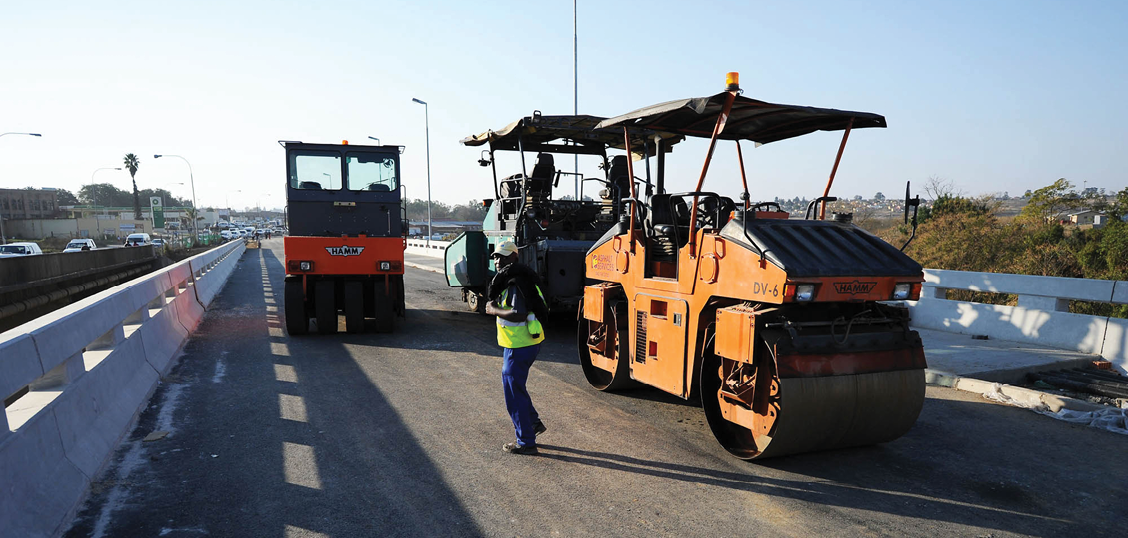 “The hemp and cannabis sector has the potential to create more than 130 000 new jobs. We are streamlining the regulatory processes so that the hemp and cannabis sector can thrive like it is in other countries, such as Lesotho,” President Cyril Ramaphosa said.
“The hemp and cannabis sector has the potential to create more than 130 000 new jobs. We are streamlining the regulatory processes so that the hemp and cannabis sector can thrive like it is in other countries, such as Lesotho,” President Cyril Ramaphosa said.
Delivering the State of the Nation Address (SONA) recently, the President said government will review the policy and regulatory framework for industrial hemp and cannabis to realise the huge potential for investment and job creation.
“Our people in the Eastern Cape, KwaZulu-Natal and elsewhere are ready to farm with this age-old commodity and bring it to market in new and innovative forms,” President Ramaphosa said.
Last year, South Africa’s unemployment rate reached its highest recorded level.
The President said unemployment has been caused by low growth, which has in turn resulted from a long-term decline in investment.
“An important pillar of our Economic Reconstruction and Recovery Plan is to revitalise our manufacturing base and create globally competitive export industries. In the past year, we launch new master plans in the steel industry, furniture and global business services.
“Through these plans, business, government and labour are working together to increase production and create more jobs in the sector,” the President said.
In the clothing industry, a number of retailers have announced ambitious localisation sourcing plans.
“While we help existing industries to grow, we are also nurturing new opportunities for growth and jobs. Government and the private sector have worked closely together to grow the global business services sector from a small group of companies to one of the world’s leading players,” the President said.
The global business services sector is on track to create 500 000 new jobs over the next few years.
“To attract investors into the mining minerals needed in the new global economy, we will soon be finalising our mining exploration strategy. We will continue to support the development of the upstream gas industry, as it holds huge potential for job creation and broader economic development,” the President said.
Government will ensure that this is done in strict accordance with the environmental and other laws of the country.
Ports and railways
“Our economy cannot grow without efficient ports and railways. Over several years, the functioning of our ports has declined relative to ports in other parts of the world and on the African continent. This constrains economic activity,” the President said.
 He added that the agricultural sector, for example, relies heavily on efficient, well-run ports to export their produce to overseas markets.
He added that the agricultural sector, for example, relies heavily on efficient, well-run ports to export their produce to overseas markets.
“Fresh produce cannot wait for days and even weeks stuck in a terminal. This hurts businesses and compromises our country’s reputation as an exporter of quality fresh produce.
“Transnet is addressing these challenges and is currently focused on improving operational efficiencies at the ports through procuring additional equipment and implementing new systems to reduce congestion,” the President said.
Transnet will ask for proposals from private partners for the Durban and Ngqura Container Terminals within the next few months, which will enable partnerships to be in place at both terminals by October 2022.
“Transnet will start the process of providing third-party access to its freight rail network from April 2022 by making slots available on the container corridor between Durban and City Deep in Gauteng.”
In addition, Transnet has developed partnerships with the private sector to address cable theft and vandalism on the freight rail network through advanced technologies and additional security personnel.
This collaborative effort is already showing results in reduced disruptions to rail operations.
The President delivered the address during a hybrid joint sitting of the two Houses (National Assembly and National Council of Provinces) at the Cape Town City Hall.
The event took place at
the Cape Town City Hall, following the damage by fire to Parliament. SAnews.gov.za
Government working to end drug use
Government working to end drug use tsoanaGovernment departments are working together to curb drug use in communities.
During a webinar on the treatment for and care of people with drug abuse disorders, the Department of Social Development (DSD) revealed that through a partnership with the police and health officials, DSD-run drug centres help rehabilitate drug offenders, rather than merely convicting and punishing them.
It is hoped that through treatment, people are steered away from a lifetime of drug abuse and criminal behaviour.
DSD Social Work Policy Manager Faith Namathe says the department has treatment centres in all provinces. “These centres treat people who are addicted to drugs and other harmful substances.”
She says youth and adult facilities are kept separate.
According to Namathe, prevention, early intervention, treatment and integration are the key components to combatting substance abuse.
“The aim of prevention is to minimise the risk factors that lead young people to drug use. Through the Ke Moja awareness campaign, we focus on educating children and adolescents about the dangers of drug use. We also train parents and caregivers to spot symptoms of drug use in children,” says Namathe.
The Ke Moja campaign is aimed at young people and uses peer educators to teach young people about the dangers of drug use. “Young people can relate better to each other,” she explains.
“Through our early intervention programme, we assist people who are still in the early stages of drug use.”
The DSD and its partners’ efforts are less likely to succeed without the support of addicts’ family, friends and community members, says Namathe.
She adds that to avoid users relapsing, the DSD helps reintegrate them with their communities.
Drug awareness in school curriculum
The DSD’s work is supplemented by the Department of Basic Education (DBE), which has incorporated drug awareness into the life orientation curriculum, says Sammy Maraba, the DBE’s Assistant Director for Schools Safety.
Maraba says their drug-awareness messages form a prominent part of efforts to curb drug use in society.
He says that the DBE is working with the DSD and police to make schools drug-free zones.
Colonel Rajeeve Singh of the SAPS Safe Schools Programme says the police conduct Search and Seizures at schools where necessary, but focuses mainly on educating children about the dangers of being arrested and having criminal records as a result of their drug activity.
To report drug-related activity, call the police at 10111. To find a treatment centre near you, call the DSD at 012 312 7500 or the DBE’s Schools Safety Unit at 012 357 3000.
More information can be found on www.saps.gov.za, www.dsd.gov.za and www.education.gov.za.
Jobs: SAPS SAPS Trainee Programme - March 2022
Jobs: SAPS SAPS Trainee Programme - March 2022 tsoanaRecruitment of graduates in possession of Bachelor of Science degrees as well as other graduates in any other fields of study (National Diploma / Degree or higher) as entry level police trainees
The South African Police Service (SAPS) is embarking on a recruitment drive for Graduates in possession of at least a three year Bachelor of Science Degree as well as other Graduates in any other fields of study (minimum of three year National Diploma/Degree registered on the National Leaners’ Records Database (NLRD) on NQF Level 6 or higher) for enlistment as Entry Level Police Trainees. Successful applicants will be trained and deployed to Police Stations to perform operational police duties.
Post title: Police Trainee REF NO. Graduate2022/2023
Act of Appointment: SAPS Act, 1995 (Act No 68 of 1995)
Training Programme Phase
Phase 1: Basic Training (9 months)
Programme: Basic Training at a Training Academy as a Police Trainee
Remuneration: Stipend: R4500 per month
Phase 2: Probation (12 months)
Programme: After successful completion of Basic Training – will be appointed to the rank of Constable
Remuneration: Salary notch: R189 279 per annum
In addition to this, applicants will receive the applicable service benefits.
Core functions: • Prevent, combat and investigate crime • Maintain Public Order • Protect and secure the inhabitants of the Republic and their property • Uphold and enforce the law
Enlistment requirements: Be a South African Citizen • Be in possession of a Senior Certificate / National Senior Certificate / National Certificate (Vocational) and be in possession of a Bachelor of Science Degree or any other fields of study (minimum 3 year National Diploma/Degree) recorded on the National Learners’ Record Database on NQF level 6 or higher • Be fluent in at least two of the official languages, of which one must be English • Between eighteen (18) and under thirty (30) years of age • Have no previous criminal convictions or pending criminal cases and shall allow his or her fingerprints to be taken and background enquiries to be made, and found to be suitable for appointment • Not have any tattoo marks of which will be visible and/or irreconcilable with the objectives of the Service • Be prepared to take the oath of office • Complete and pass a medical examination • Complete and pass a physical fitness assessment • Undergo a psychological and Integrity assessment as determined by the National Commissioner and be found to comply with the profile of a police official • Be prepared to undergo such training as determined by the National Commissioner • Be prepared to serve and be trained anywhere in the Republic of South Africa
NB: For a detailed advertisement, please visit the South African Police Service website on: https://www.saps.gov.za
Interested applicants should submit their applications on the official application form, which can be obtained free of charge from any Police Station or downloaded from the SAPS Website together with all the required documentation, to the address provided in the advertisement on the SAPS Website.
Closing date: 11 March 2022
The South African Police Service is under no obligation to fill a post after the advertisement thereof, or to appoint an applicant who was recommended for such appointment.
Kgora centre helps NW farmers grow
Kgora centre helps NW farmers grow SiboneloSmall and emerging farmers in the North West can now attend basic hatchery management training at the government-owned Kgora Farmer Training Centre near Mahikeng. 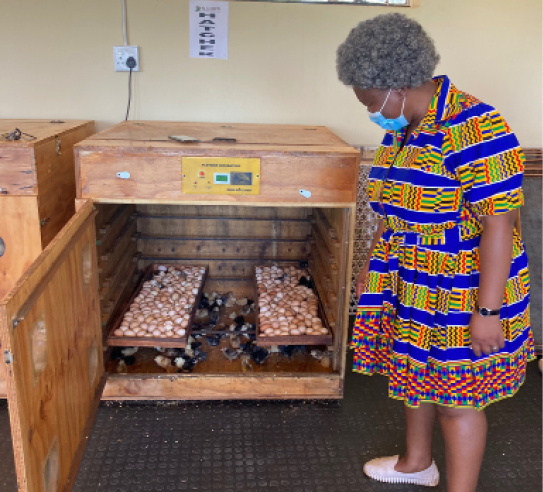
Kgora Farmer Training Centre has a list of skills development courses offered at this centre for beginners and experienced farmers to improve their results.
The mini-hatchery that was built at the centre can produce up to 2 000 chicks per week. It was established to train farmers who want to own hatcheries.
The centre now offers on-farm practical work for participants interested in owning a hatchery, which includes the biology of fertile-egg production, fertile-egg handling, setter and hatcher environment, processing day-old chicks, and hatchery bio-security.
“We had a dream about this centre and I am glad today to say that dream is slowly, but surely, becoming a reality. This milestone represents yet another step of ensuring that this state-owned farmer training centre is equipped with the modern infrastructure to train and develop local farmers,” said MEC of Agriculture and Rural Development Desbo Mohono.
She added that the main goal is to ensure that farmers constantly learn new and old practices and adapt to changes in the sector.
“I am confident that with this mini hatchery, more hatchers will receive top-class training from our training institutions.
The centre also offers other courses such as vegetable, crop, egg, and chicken farming.
“Many of the courses are practical, but business management, record keeping, and monetary management skills are also taught,
Centre Manager Thuthukani Hlangu says the facility is the only one of its kind in the region and has trained 1 500 potential farmers in the past financial year.
“Kgora Farmer Training Centre is fully accredited most of our courses are NQF level 1 accredited,” he says.
Hlangu says the centre is operated on a first-come, first-served basis.
To apply, farmers should contact an agricultural advisor on 018 389 5724, or visit their local district office.
New minimum wage
New minimum wage tsoanaThe Minister of Employment and Labour, Thulas Nxesi, has announced that the National Minimum Wage (NMW) has increased from R21.69 to R23.19 per hour for the year 2022, with effect from 01 March 2022.
“It is illegal and unfair labour practice for an employer to change working hours or other employment conditions in order to implement the NMW. The NMW is the amount payable for ordinary hours of work and excludes payment of allowances such as transportation, tools, food, or lodging tips, bonuses, and gifts,” said Minister Nxesi.
As in previous years, the ad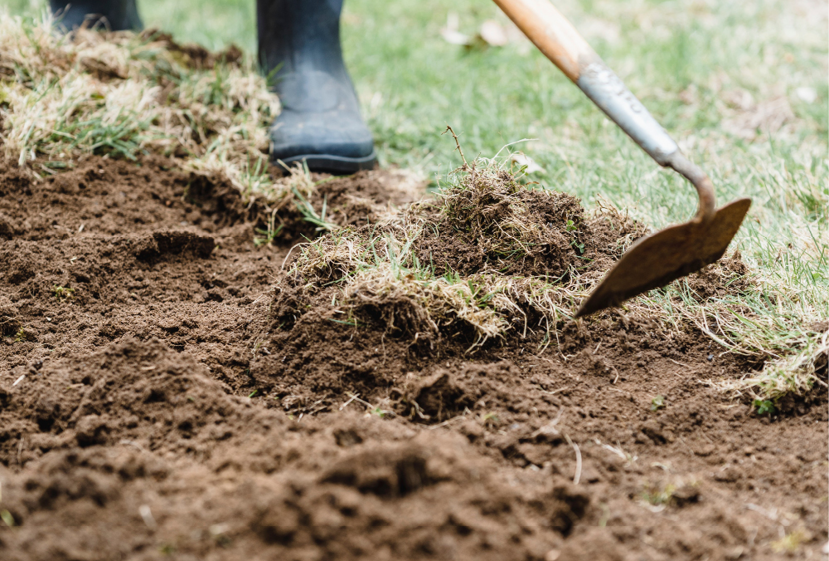 justment provides exceptions for several worker groups such as workers employed by the Expanded Public Works Programme. These workers are entitled to a minimum wage of R12.75 per hour.
justment provides exceptions for several worker groups such as workers employed by the Expanded Public Works Programme. These workers are entitled to a minimum wage of R12.75 per hour.
Farmworkers are included in the NMW of R23.19 per hour.
Domestic workers are also entitled to a minimum wage of R23.19 per hour.
Minister Nxesi said the NMW Commission reviews the rates on an annual basis and makes recommendations on any changes to the NMW.
The Commission also takes into account alternative viewpoints, including those of the general public.
When determining the annual adjustment, the Commission considers inflation, the cost of living, productivity and employers' ability to operate their business successfully.
The Commission also considers the impact of the recommended adjustment on employment or the creation of employment.
For more about the NMW, visit the www.labour.gov.za
Principal Abonga Mdze swells matric pass rate
Principal Abonga Mdze swells matric pass rate tsoanaONE OF the country’s youngest school principals shows that with dedication and passion, Maths and Science can be mastered.
Ngqwala Senior Secondary School Principal Abonga Mdze (29) led his school to an 88.6% matric pass rate in 2021 – up from 45% in 2019.
Mdze became acting principal of the school, which is in Tsolo village in the Eastern Cape, in June 2020 and under his guidance, a 66% matric pass rate was achieved that year.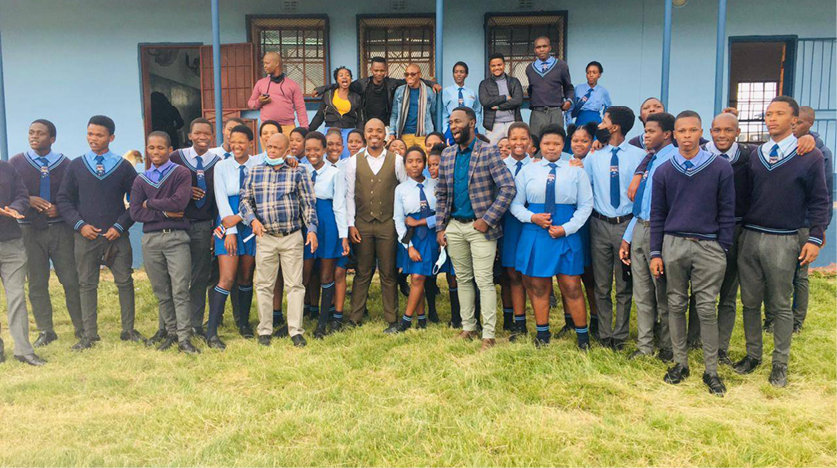
As a result, his appointment became permanent in January 2021, when he was just 28.
Mdze, who has a Bachelor of Education from the Walter Sisulu University, says that his path into teaching started when he was a learner at the Lutuka Senior Secondary School, and tutored his peers in mathematics.
“By the time I got to matric, word of my tutoring had spread so much that on Saturdays and Sundays, pupils from schools in the surrounding villages would come for lessons,” says Mdze.
He started his official teaching career as a mathematics teacher at the KT Mchasa Senior Secondary School in Tsolo in 2015. While there, he started winter classes that saw the school’s maths result improve.
His teaching excellence was noted by his peers and in 2017, Mdze formed part of the Eastern Cape Department of Education’s winter school programme in the OR Tambo Inland Circuit.
“The winter classes I started in 2015 at KT Mchasa Senior Secondary School produced such good results that the department rolled out a similar project throughout the circuit.”
In June 2019, he became the Head of Department for Maths and Science at Ngqwala school. The year before, none of the school's matriculants passed maths or science, but under his guidance, the Class of 2019 achieved a 35% pass for maths and 40% for science.
“We managed to achieve this because when I was appointed, I involved all the teachers under my supervision. I also engaged with pupils and parents.”
Having sold his vision, Mdze launched the Ilima programme. Ilima is the isiXhosa word for the ‘community coming together with a singular mission’.
Learners attended revision classes every Saturday and Sunday as part of the Ilima programme. Learners interested in the Ilima programme can visit the school for more infomation.
Public and private sector key to economic growth
Public and private sector key to economic growth JoyAs we work to grow our economy and create employment, there is much debate about the relative roles of the state and business in pursuing these goals.
 Some people have suggested that we must make a choice between, on the one hand, a developmental state that plays a vital role in economic and social transformation, and, on the other, a vibrant, expanding private sector that drives growth and employment.
Some people have suggested that we must make a choice between, on the one hand, a developmental state that plays a vital role in economic and social transformation, and, on the other, a vibrant, expanding private sector that drives growth and employment.
The reality is that we need both. We need a capable developmental state and a dynamic and agile private sector. We need them to work together and complement each other.
This idea is not new. Thirty years ago, in 1992, the African National Congress adopted a document titled “Ready to Govern”. The document set out policy guidelines for a democratic South Africa and has, over nearly three decades, influenced the policy direction of successive democratic administrations.
The “Ready to Govern” document envisaged a democratic state with ultimate responsibility for coordinating, planning and guiding the development of the economy towards a sustainable growth pattern’ in cooperation with the trade union movement, business and other organs of society.
It spoke of the need for economic policy that democratises the economy and creates productive employment opportunities at a living wage for all South Africans.
The document further envisages a dynamic private sector, employing the skills and acumen of all South Africans … and of business activities which contribute significantly to job creation, being actively encouraged.
In the recent State of the Nation Address, I outlined how government, business and labour should work together, each using their unique capabilities, to create jobs.
One of the most important drivers of growth and employment are state-owned enterprises (SOEs). They generate electricity, manage the ports, build the roads and supply the water that the economy needs to function.
Since the advent of democracy, these SOEs have significantly expanded access to basic services for the poor. That is why a critical part of our programme is to strengthen state-owned enterprises, restoring them to financial health, improving their operational performance and enabling them to play a more prominent and beneficial role in the economy.
True to the role envisaged in "Ready to Govern", the state directs both growth and transformation through levers like competition policy, broad-based black economic empowerment provisions and employment equity laws, and by linking the award of various licences to universal service and empowerment obligations.
Government is also directly involved in employment creation beyond those people employed in the public service. The Expanded Public Works Programme, which has been in existence since 2003, has provided work opportunities to millions of people.
More recently, in response to the devastating economic impact of the COVID-19 pandemic, this government has overseen the most significant expansion of public employment in our country’s history.
The Presidential Employment Stimulus has supported more than 850 000 opportunities in just 16 months. In addition to expanding public employment, we are providing support to unemployed young people to prepare them for work, make them more employable and connect them to opportunities.
There are many other ways in which government is contributing directly to job creation, including through large-scale investments in infrastructure, the establishment of special economic zones and through support to labour-intensive growth industries.
A special focus this year is on small, medium and micro businesses, on cooperatives and the informal sector.
Through the redesign of the loan guarantee scheme that we introduced in the early months of the COVID-19 pandemic, we are making ‘bounce back’ finance more accessible for small businesses.
We are expanding the employment tax incentive and looking at various other regulatory changes to make it easier for small businesses to employ more people.
As I indicated in the State of the Nation Address, these are among the measures we are taking as government to create the conditions that will enable the private sector – both big and small – to emerge, to grow, to access new markets, to create new products, and to hire more employees.
The private sector employs some three quarters of South Africa’s workers and accounts for over two-thirds of investment and research and development expenditure.
Alongside a capable and developmental state, our country therefore needs a thriving private sector that is investing in productive capacity.
As private sector employment expands, more livelihoods are supported and sustained. Goods and services are delivered at a greater scale and the democratic state is able to collect more revenue for social development.
The “Ready to Govern” document says that the role of the state should be adjusted to the needs of the national economy in a flexible way, whether it is increasing the public sector in strategic areas or reducing it in others.
We will not achieve such an economy without both a strong and capable developmental state and an inclusive, fast-growing private sector. We should not be asked to choose
one or the other. We need both.
Raising awareness about cyber bullying
Raising awareness about cyber bullying tsoanaIn 2019, Charlotte Gumbi became a victim of cyberbullying and Gender-Based Violence when her former boyfriend shared her nude pictures on social media.
Gumbi says her former boyfriend sent her naked photographs to people who knew her on WhatsApp, to her family, and to people who live in her street. 
After the traumatic experience, Gumbi launched a non-profit organisation (NPO) called Humanity Must Rise.
“I was depressed for a few days after the incident until I decided I would no longer hide behind the shame of the abuse.”
She decided to create awareness, give hope to rape survivors and give young girls, boys and women the courage to speak up.
Through the NPO, Gumbi has been speaking at schools, youth development events and radio, creating awareness on rape, bullying and cyberbullying.
“Children in primary schools have access to smartphones. They are also subjected to cyberbullying and sharing naked pictures of themselves.”
Gumbi advises youngsters to never share their nudes. She says if you decided to share them, do this in confidence with your partner but know the dangers of your images ending up on the internet.
“Remember that once something is on the internet it’s there for life and you can never take it back. Think of it this way. If you wouldn’t want your future kids, husband or employer to see it on a billboard, then don’t post it and don’t share it with anyone,” she says.
Gumbi is
available to give talks to children and youth. Email her on humanitymustrise1@gmail.com or search her on any social media platform under the name Charlee Hustle.
If you are being cyber bullied call the GBV Command Centre at 0800 428 428 or visit your nearest police station to report the matter.
Relief on the way for small employers
Relief on the way for small employers JoyEmployment and Labour Minister Thulas Nxesi says efforts are underway to make it easy for small businesses to do business in South Africa.
Minister Nxesi was speaking during a debate on the 2022 State of the Nation Address recently.
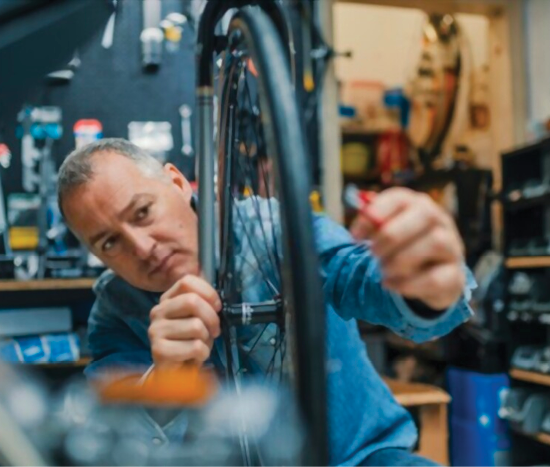 “We were mindful of the fact that businesses go through seasons and stages and we were deliberate in making sure our labour laws speak to their twists and turns.
“We were mindful of the fact that businesses go through seasons and stages and we were deliberate in making sure our labour laws speak to their twists and turns.
“That is why there is a Ministerial determination which deliberately excludes employers who employ 10 and less employees from certain conditions of employment,” he said.
Minister Nxesi said labour laws allow all employers who face difficult times to apply for exemptions from certain provisions of the law. For example, those that genuinely cannot pay the prescribed national minimum wages can apply for exemption.
“It is important to highlight that the department is on a path of further amending the legislation to address impediments that inhibit the ability of small business to create employment and to thrive.
“The department is considering amending the law to exclude small employers from having to submit several plans and reports for compliance, and rather for them to operate under a dedicated Code of Good Practice.”
Minister Nxesi said this code will guide small employers to appropriately conduct their businesses as required by law and reduce the administrative burden without undermining the labour laws in place.
Employing foreign nationals
The Minister said the recently-approved National Labour Migration Policy is out for public consultation.
The policy seeks to address the growing concern by citizens that some employers are employing foreign nationals and, subjecting them to sub-standard conditions and in the process, are displacing locals.
“We will introduce quotas on the maximum number of foreign nationals that can be employed in the different economic sectors.”
He also said that the Small Business Development Department is looking at which sectors could be limited to South Africans to trade in.
“In focusing on these priorities we continue to re-affirm the rights of migrants, the global treaties that we are party to and the Southern African Development Community and African Union Protocols that we have signed.” SAnews.gov.za
SONA 2022: Bettering lives and livelihoods
SONA 2022: Bettering lives and livelihoods JoyGovernment is committed to putting people first, and has given itself 100 days to finalise a plan to involve all sectors of society in growing South Africa’s economy, creating jobs and combating hunger.
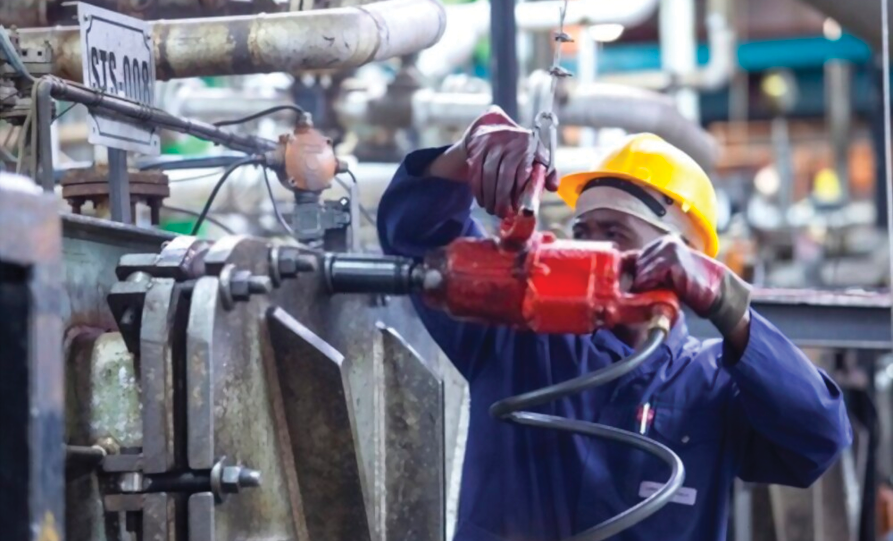 This was emphasised by President Cyril Ramaphosa in his 2022 State of the Nation Address.
This was emphasised by President Cyril Ramaphosa in his 2022 State of the Nation Address.
“This work will build on the foundation of the Economic Reconstruction and Recovery Plan, which remains our common programme to rebuild the economy,” he said.
The President said government’s priorities are overcoming the Coronavirus Disease (COVID-19) pandemic, building infrastructure, increasing local production, creating jobs and addressing the energy crisis.
“If there is one thing we all agree on, it is that the present situation – of deep poverty, unemployment and inequality – is unacceptable and unsustainable.”
Creating jobs
Last year, the unemployment rate reached its highest recorded level of 34.9% in the third quarter, following the financial devastation caused by COVID-19.
“We all know that government does not create jobs. Business creates jobs. The key task of government is to create the conditions that will enable the private sector – both big and small – to emerge, to grow, to access new markets, to create new products, and to hire more employees,” he said.
Around 80% of employed people work in the private sector.
The President said government will introduce a new loan guarantee scheme to help small businesses recover.
The Presidential Employment Stimulus Programme, which has already supported over 850 000 employment opportunities, will be stepped up. Most of the beneficiaries were young people; over 60% were women.
The employment stimulus will enable the Department of Home Affairs to recruit
10 000 unemployed youth for the digitisation of paper records, and the Social Employment Fund will create another 50 000 work opportunities. The Department of Higher Education and Training will place 10 000 unemployed technical and vocational education and training graduates in workplaces from April 2022.
The SAYouth.mobi platform, which helps young work seekers to access opportunities and support, now has over 2.3 million youth registered. Of these, over 600 000 have been placed into employment opportunities.
“A revitalised National Youth Service will recruit its first cohort of 50 000 young people during the next year [2023], creating opportunities for young people to contribute to their communities, develop their skills and grow their employability.”
SRD Grant continues
The COVID-19 Social Relief of Distress (SRD) Grant, which has helped over
10 million unemployed people, has been extended for another year – to the end of March 2023.
In addition, government and its partners will look at ways to continue to support people in financial distress in a manner that is affordable to the country over the long term.
Access to land
Government is moving ahead with land reform and anticipates the approval of the Expropriation Bill this year. The establishment of the Agriculture and Land Reform Development Agency will also be finalised this year.
“The Department of Public Works and Infrastructure will finalise the transfer of 14 000 hectares of state land to the Housing Development Agency,” the President said.
He added that there is enough arable land to support millions of thriving small-scale farmers in poultry, livestock, fruit and vegetables.
Already, over 100 000 farmers have received input vouchers to expand their production and the programme will be expanded to reach more farmers.
Corruption and crime
From instituting the Commission of Inquiry into State Capture, to investigating COVID-19-related procurement contracts, President Ramaphosa is leaving no stone unturned when it comes to ending corruption.
“None of our efforts to revive our economy will succeed if we do not tackle the scourge of corruption once and for all,” the President said.
By no later than 30 June 2022, he will present a plan of action in response to the Commission’s recommendations.
He explained that various government agencies were working together to identify wrongdoers, punish them, and to get looted State money refunded.
Safety and security will be strengthened through the recruitment of 12 000 police personnel and the re-establishment of community policing forums.
Fighting GBVF
Government will also continue to intensify the fight against Gender-Based Violence and Femicide (GBVF) this year, through the implementation of the National Strategic Plan on GBVF.
Three new laws are already working to strengthen the criminal justice system and support survivors. “The implementation of this legislation will go a long way to ensuring that cases are successfully prosecuted, that survivors are protected and that there are more effective deterrents in place.”
One of the new laws that President Ramaphosa was referring to is the Criminal and Related Matters Amendment Act which protects the vulnerable from secondary victimisation. This Act allows the courts to appoint intermediaries through which a minor, a disabled person or an elderly person can be examined in proceedings.
The President was also referring to the new Criminal Law (Sexual Offences and Related Matters) Amendment Act which outlaws sexual exploitation and grooming of persons with mental disabilities. This Act also states that sexual offences against persons who are mentally disabled must be recorded in the National Register of Sex Offenders.
The Domestic Violence Amendment Act takes account of some of the complexities in violent domestic relationships. The Act allows for the process of obtaining protection orders, and broadened the circumstances under which a protection order can be applied for.
President Ramaphosa said this Act also protects the elderly from all forms of domestic violence, and also permits complainants to apply for protection orders online, saving them time and travel costs.
SONA
SONA tsoanaSONA Reply: inspiring hope and confidence
SONA Reply: inspiring hope and confidence SiboneloThere is broad agreement, across society, that as government works to grow South Africa’s economy, create employment and fight hunger and poverty, no one should be left behind.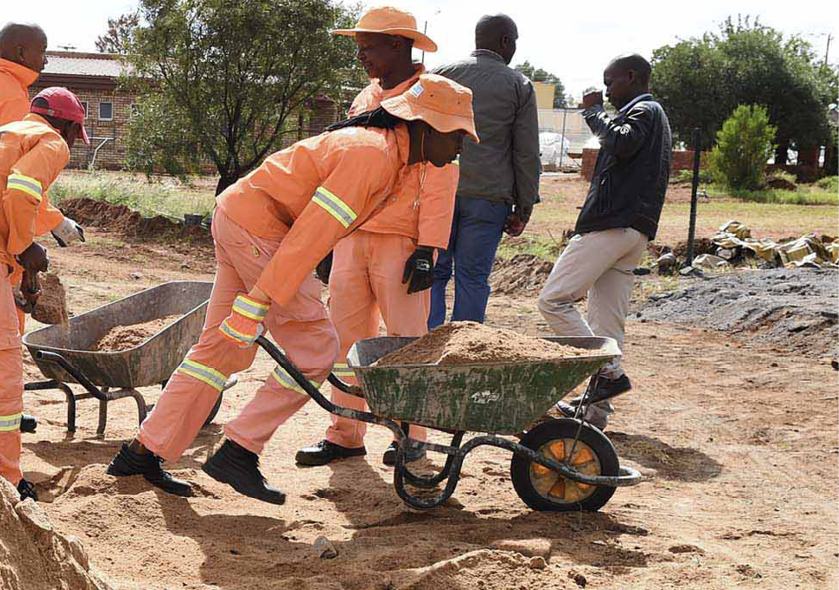
President Cyril Ramaphosa confirmed this in his 2022 State of the Nation Address (SONA) Debate Reply held recently.
He made a call to every South African to rally together in the fight against corruption, and the fight to create jobs and achieve a more just and equal society.
This call was answered by several members of the two Houses of Parliament.
“I called for a new consensus to unite our country, in a moment of great crisis, behind an agenda for change and renewal… Although they represent different parties and different perspectives, many of the speakers in the SONA Debate affirmed their commitment to this shared goal,” he said.
Following his SONA, the President received many valuable contributions on how to effectively address South Africa’s challenges.
“The most pressing of which is fixing the economy as it’s essential to almost every other area of life. Our 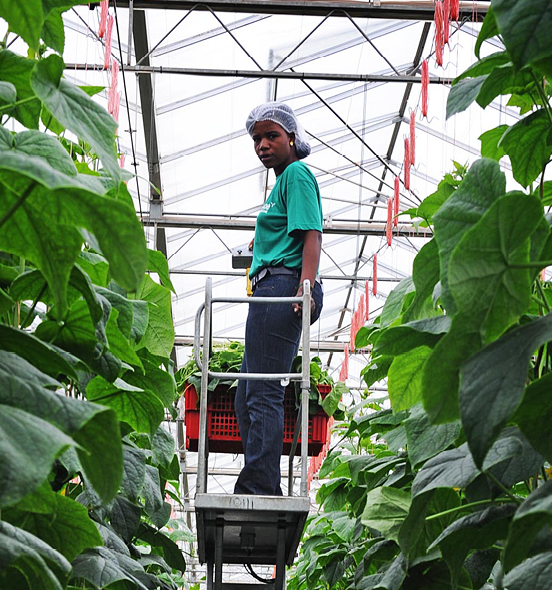 focus on the economy does not, however, diminish the importance of the many other areas of government’s work,” he said, confirming that these issues will be dealt with in greater detail in the upcoming budget votes and Ministers’ public engagements.
focus on the economy does not, however, diminish the importance of the many other areas of government’s work,” he said, confirming that these issues will be dealt with in greater detail in the upcoming budget votes and Ministers’ public engagements.
A committed State
President Ramaphosa said the country was emerging from over a decade of low growth and deepening unemployment, State capture and the assault on the institutions of the State that accompanied it.
“We cannot disregard the fact that the pandemic has caused our economy severe damage that will take years to repair. Unless we appreciate these facts, unless we characterise the current situation correctly, our response may well be ill-considered and misdirected,” the President said.
Government’s collective actions in response to the pandemic, all noted in the SONA, saved tens of thousands of lives and kept millions of people out of dire poverty.
The President’s focus on job creation, outlined in SONA, gave rise to a debate on the State’s and private sector’s roles in fostering economic growth and creating employment.
“Some speakers have taken a crude and self-serving approach to a complex issue, but for the most part, commentators have engaged meaningfully with one of the most important questions facing our country today. They have earnestly sought to answer the central question of who will create the jobs for the 11 million unemployed people in South Africa,” the President said.
He explained that while the private sector creates the most jobs, the State has a clear role to play through state-owned enterprises, public employment programmes, industrial policy, competition policy, infrastructure investment and the employment of the public service itself.
“We envisage both a capable, developmental State and a dynamic and agile private sector, which work together and complement each other.”
Inspiring hope and confidence
President Ramaphosa said that while most Members of the Houses of Parliament are firmly committed to building a united, equal and prosperous nation, others have different interests and priorities. He emphasised, however, that while they preach despair and create doubt, government sees hope and renewed confidence.
Hope is seen in the new work and livelihood opportunities created by the Presidential Employment Stimulus that will soon reach over a million people.
He said the bridges being built to get children to school safely; and the sector master plans driving new investment which creates new jobs and the revival of key industries.
“That is what progress looks like.”
Renewed confidence is seen in the most significant reform in SA’s energy system in nearly a century; the long-delayed reforms – like the spectrum auction and the revised critical skills list – that are being implemented; and concrete steps being taken to modernise ports and rail infrastructure.
Unifying SA
President Ramaphosa spoke in-depth about government’s commitment to South Africa and unifying her people, both evident in the strides it has made to fight corruption; create conditions conducive to growing business and ensuring job creation; uplifting women, youth and persons with disabilities; and protecting women.
“Our commitment to the transformation of the economy, so it benefits all South Africa’s people, is unwavering. We have a manifesto – for which the people of this country demonstrated overwhelming support – that is a bold and coherent plan to achieve a better life for all,” the President said.
SONA in numbers
SONA in numbers SiboneloPresident Cyril Ramaphosa recently delivered the State of the Nation Address, during which he gave feedback on government programmes over the past year and announced new plans for 2022 and beyond. Vuk’uzenzele unpacks the programmes in numbers.
Economy and jobs 
R1.2 trillion – value of the target set by government nearly four years ago to mobilise new investment over five years.
R776 billion – value of investment commitments reached by the time of the third South Africa Investment Conference in November 2020.
500 000 – new jobs to be created by the global business services sector over the next few years.
More than 130 000 – new jobs that could potentially be created by the hemp and cannabis sector.
Over 850 000 – opportunities supported by the first two phases of the Presidential Employment Stimulus programmes, which government launched in October 2020.
Over 60% – women participated in the Presidential Employment Stimulus programmes.
Over one million – direct beneficiaries of the Presidential Employment Stimulus programmes.
Over 500 000 – young people appointed as education assistants.
10 000 – unemployed young people to be recruited by the Department of Home Affairs for the digitisation of paper records.
50 000 – work opportunities to be created by the Social Employment Fund in areas such as urban agriculture, early childhood development, public art and tackling gender-based violence.
More than 2.3 million – young South Africans registered on the SAYouth.mobi platform for young work seekers to access opportunities and support.
Over 600 000 – young South Africans registered on the SAYouth.mobi who have been placed into employment opportunities.
50 000 – young people to be recruited by a revitalised National Youth Service during the next year to contribute to their communities, develop their skills and grow their employability.
10 000 – unemployed Technical and Vocational Education and Training graduates to be placed in workplaces from April 2022 by the Department of Higher Education and Training.
100 – days to finalise a comprehensive social compact to grow the economy, create jobs and combat hunger.
Coronavirus Disease
2 million – people out of work due to COVID-19.
R3.4 billion – money raised by the Solidarity Fund from more than 300 000 individuals and 3 000 companies and foundations.
30 million – doses of COVID-19 vaccines administered by 10 February 2022.
Infrastructure
R100 billion – money allocated to the Infrastructure Fund over 10 years.
Approximately R96 billion – investment value of the Infrastructure Fund’s projects in student accommodation, social housing, telecommunications, water and sanitation and transport.
R1.8 billion – an initial investment government will make in bulk infrastructure, which will unlock seven private sector projects to the value of R133 billion.
95 – number of bridges to be delivered a year by the Welisizwe Rural Bridges Programme.
14 – number of current bridges delivered by the Welisizwe Rural Bridges Programme.
685 – kilometres of rural roads to be constructed or upgraded over the next three years.
Social protection
More than 18 million – people benefiting from the social protection system every month.
More than 10 million – unemployed people supported by the Social Relief of Distress Grant since the onset of COVID-19.
R350 – value of the Social Relief of Distress Grant.
Housing and agriculture
14 000 – hectares of state land to be transferred to the Housing Development Agency by the Department of Public Works and Infrastructure.
Over 100 000 – farmers who have already received input vouchers through the Presidential Employment Stimulus and the Solidarity Fund to expand their production.
R225 million – money provided through the Sugar Master Plan to over 12 000 small-scale sugar cane growers as part of a R1 billion commitment to support black farmers.
250 000 – small-scale farmers targeted to receive input vouchers this year.
Fight against crime and corruption
45 – Special Investigating Unit matters enrolled with the Special Tribunal.
R2.1 billion – combined value of the 45 Special Investigating Unit matters enrolled with the Special Tribunal.
224 – government officials referred for disciplinary action by the Special Investigating Unit.
386 – cases referred for possible prosecution to the National Prosecuting Authority.
12 000 – new South African Police Service personnel to be recruited and trained.

Health
More than 59 million – people registered in the Health Patient Registration System.
More than 56 000 – additional health workers recruited by September 2021.
More than 46 000 – community health workers integrated into the public health system by September 2021.
Soweto Creamery’s grant start inspires President
Soweto Creamery’s grant start inspires President tsoanaThando Makhubu (30), who owns Soweto Creamery, says he started the business in August 2020 with money saved from a government Social Relief of Distress Grant.
He and millions of others received the R350 monthly grant paid from April 2020 to unemployed people and people who had lost their income sources as a result of the Coronavirus Disease (COV ID-19) pandemic.
ID-19) pandemic.
The grant was recently extended by President Cyril Ramaphosa to March next year.
Makhubu, who received his first payment in May 2020, says he used it to assist at home, but managed to save the next two payments.
“I used the R700 to buy five-litres of ice cream, chocolates, cookies, sprinkles and lollies to create what I called ‘Chocolate Overload’. I took pictures and uploaded them onto my WhatsApp status. Within no time, friends and family had snapped them up,” says Makhubu.
The entrepreneur says social media played a huge role in boosting his business.
A fashion design graduate, Makhubu was running an events photography business in 2020 when the lockdown was announced. He says with events no longer taking place, he was forced to apply for the grant.
Instant fame
The manner in which Makhubu used his R350 earned him a mention from President Ramaphosa during this year’s State of the Nation Address (SONA) in February. President Ramaphosa commended his innovation.
“Since the onset of COVID-19, the SRD Grant of Distress Grant has provided support to more than 10 million unemployed people who were most vulnerable to the impact of the pandemic.
“Some people used that money to start businesses. Thando Makhubu from Soweto received the R350 grant for seven months last year, and saved it to open an ice cream store that now employs four people.”
Makhubu says that he missed the live SONA, because he was at gym at the time. “After gym, I opened my phone and I had messages and missed calls from countless people. Once I had a picture of what was happening, I watched the SONA online and I kept replaying the part about me,” he says.
How to apply for the SRD grant
The South African Social Security Agency (SASSA) administers the grant.
Applications can be made via the:
• SASSA website: https://srd.sassa.gov.za.
• WhatsApp line: 082 046 8553.
• USSD line: *134*7737#
Telkom incubation programme drives ICT-solutions
Telkom incubation programme drives ICT-solutions SiboneloSoweto-based tech entrepreneurs have been selected by Telkom to be part of its township innovation incubator programme.
The 18-month business programme aims to boost 11 technology-driven entrepreneurs in various areas of business.
The incubator is an offshoot of the Telkom FutureMakers initiative, which was initially launched in 2015. Since its inception, it has supported more than 2 500 small, medium, and micro-sized enterprises.
Mmathebe Zvobwo, Telkom’s Executive for FutureMakers, says FutureMakers focuses on four areas – incubation, investment, connectivity, and business development support services.
“So far, the incubator has approved R100 000 in funding for each of the 11 entrepreneurs. This will help with initial progress activities for the first year. In their second year of operation, the businesses will have to pitch for the second round of funding,” adds Zvobwo.
She says the initiative will have a social impact, because participants were selected on their ability to develop ICT-based solutions to local issues.
Problem-solving concepts
One beneficiary of the programme is Soweto-based Lebogang Madiba of Bophelo Mpilo, a company that eases the pressure at public hospital dispensaries. The Central Chronic Medication Dispensing and Distribution system creates a tailor-made, door-to-door chronic medication delivery service for the less privileged.
Zvobwo says Madiba will pilot the system in some of the country’s public hospitals. “This start-up has managed to secure a proof of concept with the National Department of Health, and we expect the pilot project to be a success.”
Another selected entrepreneur is Katlego Sekete of Baadaye, a digital marketing, media, and technology agency. Her company has created a crowdfunding platform that helps public schools raise funds to tackle challenges, such as poor sanitation.
Sekete says she is keen to continue building tech-enabled solutions that matter. “The programme has equipped me with tools that have allowed me to better structure and monetise my business. I look forward to growing my business efficiently while addressing social ills within my community.”
Zvobwo confirms that applications for the next round will open in April 2022. “This will be for the first leg of interviews. It is a vigorous selection criteria process and I advise applicants to prepare extensively.”
For application forms and criteria, visit Telkom FutureMakers on www.telkom.co.za/about_us/futuremakers
Your blood can save three lives
Your blood can save three lives SiboneloThe gift of blood from a donor saved the life of Mosa Mphore (34) after complications from an earlier kidney transplant. 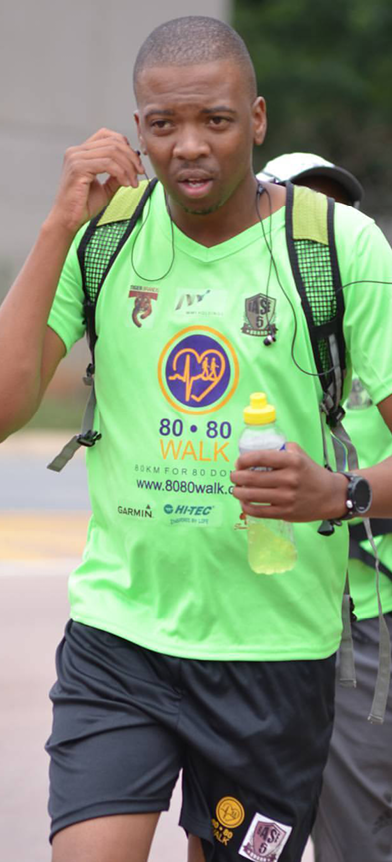
Mphore says thanks to the South African National Blood Service’s (SANBS) work, blood was available when he needed a transfusion last February at the Charlotte Maxeke Johannesburg Academic Hospital.
“After I fell ill, doctors said that my body was unable to fight illnesses, so I had to get a plasma transfusion. Plasma was extracted from donated blood.”
Mphore says a plasma transfusion is generally given to people with liver disease. It helps boost the patient's blood volume.
Blood donations can save countless lives, says SANBS spokesperson Khensani Mahlangu. Donated blood is used to treat people in both public and private health facilities.
“A single ‘whole blood’ donation may help as many as three patients,” she says.
Donated blood can also be used to treat:
- Patients with cancer.
- Accident victims.
- Women who may bleed excessively during labour.
According to Mahlangu, 27% of blood is used in medical cases, 26% in
childbirth and gynaecological cases, 21% in surgical cases, 10% in paediatric cases, 6% in orthopaedic cases, another 6% goes towards research and 4% is used in casualty wards to treat victims of trauma.
Mahlangu also explained that the blood of first time donars is not used in its totality.
"Components of the blood are extracted such as plasma for example."
She says the more one donates the more chances that their whole blood will be used.
"The blood donated by regular donors is less likely to be in the infectious window period."
Become a donor
The SANBS has a set of requirements for people to be considered safe blood donors. You must weigh at least 50kg, be between the ages of 16 and 65, be in good health, and lead a sexually safe lifestyle.
Donated blood lasts only for 42 days after donation, which is why SANBS appeals to people to donate regularly – donors may make a donation every 56 days, according to Mahlangu.
To ensure the country has an adequate blood supply, 3 500 people need to donate blood daily, says Mahlangu.
If you want to donate blood, visit your local blood donation centre or watch out for local blood drives, which are held in shopping centres, and at
schools and health centres countrywide.
For more information, visit www.sanbs.org.za or call 011 761 9000.